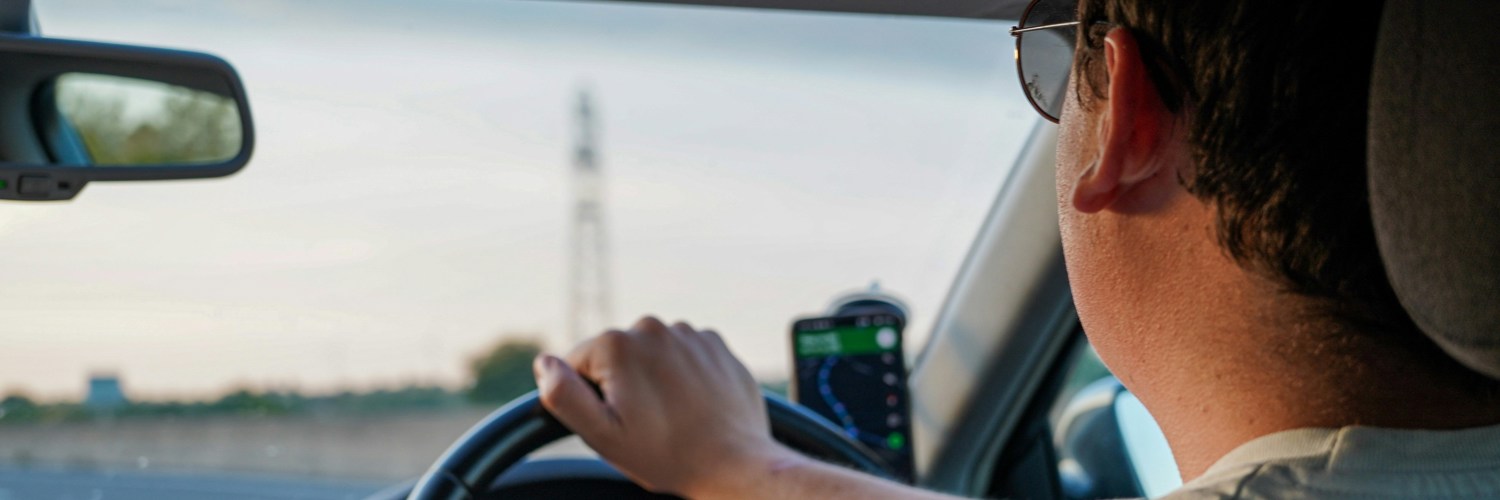Tell us what you think! Give your feedback on our new website here.
Travel and transport in the UK
While you study in the UK, you may want to explore other parts of the country. Find out about driving in the UK and different modes of transport.
Last updated on 20 March, 2025

Introduction
Last updated 12 January, 2025
The UK is well connected by various forms of transport. Including numerous train lines, airports, cycle paths, underground subways and roads.
Because the UK is a small country, you’ll be able to see much more than just the location of your institution. Our information below will help you make the most of your time in the UK.
What modes of transport will I find in the UK?
Last updated 12 January, 2025
Can I drive while I’m in the UK?
Last updated 20 March, 2025
Before driving any vehicle (car, motorbike, van etc) in the United Kingdom (England, Scotland, Wales and Northern Ireland), you should check that you meet all of the legal requirements which apply (a) to the driver and (b) to the vehicle; and that you are aware of the correct procedures, which may be very different from your home country.
It is a criminal offence to drive using a licence that is not valid in the UK. In addition, if you do so, your car insurance will be invalidated and you will be committing a further criminal offence of 'driving without motor insurance'.
If you hold a driving licence issued outside of Great Britain (England, Scotland and Wales) then you can use the tool on the Government website to check whether you can use it to drive in the UK. You may be allowed to do so for a limited period of time only.
Learning to drive
If you wish to drive a car in the UK but do not currently hold a valid licence, you will need to apply for a provisional licence and pass a theory test and practical driving test in order to obtain a full licence.
Driving licences are issued by the Driver and Vehicle Licensing Authority (DVLA) in England, Scotland and Wales, and by the Driver and Vehicle Agency Northern Ireland in Northern Ireland.
Gov.uk has introductory information for those who want to Learn to drive a car.
Driving rules in the UK
Last updated 13 January, 2025

In addition to having current valid road tax, insurance and a driving licence, you must:
-
drive on the left-hand side of the road and overtake on the right-hand side;
-
wear a crash-helmet if you are riding a motorcycle or a moped;
-
wear a seat belt if you are the driver or front seat passengers; rear seat passengers must wear seat belts where they are fitted;
-
not drive whilst under the influence of alcohol or drugs;
-
be aware of, and observe, speed limits on all roads;
-
observe the minimum age requirements. Generally, these are 17 years for cars and motorcycles, 18 years for medium sized vehicles.
Further information about what you can drive and your legal obligations as a driver can be found on the DVLA and DVANI websites.
We recommend reading The Highway Code if you are planning to drive in the UK. It is useful reading both in terms of road safety and because many of its rules are legal requirements. The Know your traffic signs guide is also essential reading if you are not familiar with the meaning of UK road signs.
Driving and immigration permission
Last updated 12 January, 2025
Anyone who applies for a UK driving licence must prove their identity, see the gov.uk info on Identity documents needed for a driving licence application.
If you cease to be lawfully resident in the UK, for example if you become an overstayer, the DVLA can revoke your driving licence.
In any UK immigration application you are required to declare criminal convictions, including road traffic offences. If you have been disqualified from driving then you will need to declare this.
Although you are not required to declare any fixed penalty notices (which were not issued by a court), be aware that if you fail to pay, this could result in a more serious punishment, which may have to be declared. If you have received multiple fixed penalty notices then this could also be treated seriously by the Home Office when considering your immigration application. You are advised to seek legal advice from an immigration specialist if you think any of these matters may affect you.
What driving insurance do I need?
Last updated 12 January, 2025
UK law requires all motorists to have valid insurance that provides them, or anyone they permit to use the vehicle, with insurance cover for the vehicle that they are driving.
It is illegal to drive without valid insurance, road tax or a valid driving licence. The penalty for doing this may be a fine, a ban or imprisonment.
The cost of motor insurance cover will vary according to a number of factors such as your age, how long you have been driving, where you are living, the age and value of your car and the type of car you have. Costs may vary widely between insurance companies for the same cover, so you may want to compare costs.
Can I use a Moped or Motorcycle?
Last updated 12 January, 2025
Even if you have a licence for driving a car, you might still need to complete a Compulsory Basic Training course before riding a moped or a motorcycle in the UK.
How do I buy a vehicle in the UK?
Last updated 12 January, 2025
Some international students decide that it would be beneficial to own a vehicle while living in the UK. There are a few things you need to be aware of, such as registering your vehicle and the accompanying legal requirements to ensure roadworthiness:
Related articles
-
Travel to your institution
When you arrive in the UK, you may need to make your own way to your institution. Read our information as well as any instructions sent from your university, school or college to ensure you’re prepared.
-
Travel in Europe
As an international student in the UK, you may want to take the opportunity to travel around Europe. Here are some practical tips to consider before you travel.
-
Accommodation
Choosing what accommodation to live in as an international student is a big decision, there are several options available for international students. Find out what the differences are, how to book and any immigration checks you need.
Sign up to our free email newsletter
Stay in touch with UKCISA and get all of our updates before anyone else.


